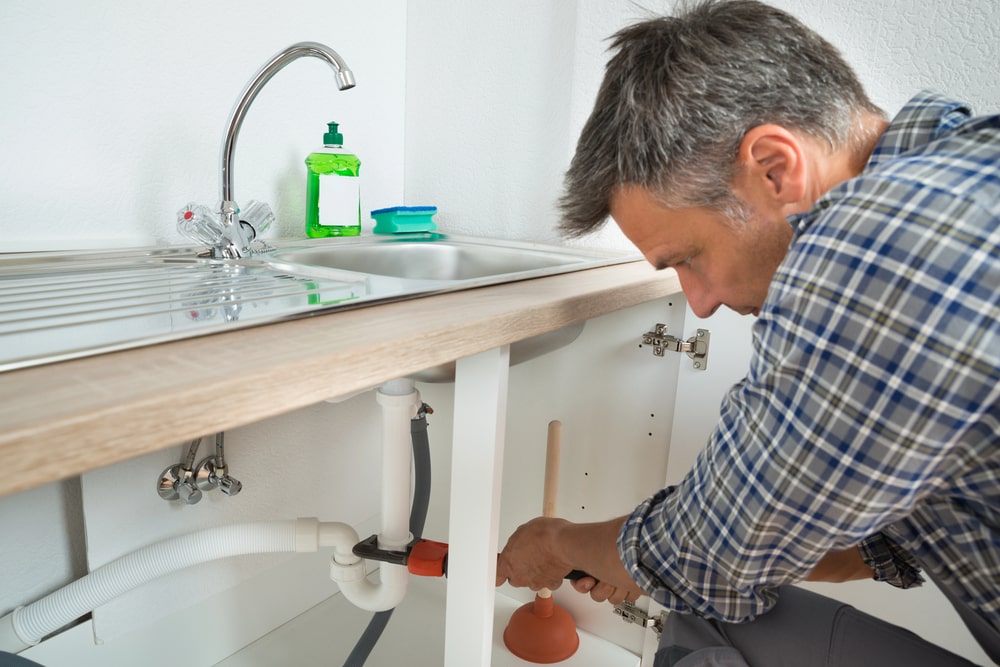How to Prevent and Fix Common Plumbing Issues at Home

Plumbing issues can quickly turn a comfortable home into a source of stress and frustration. From minor leaks to complete blockages, these problems not only compromise your living conditions but can also lead to costly repairs if left unchecked.
Fortunately, understanding how to prevent and fix common plumbing issues at home can save you both time and money. Addressing these problems before they escalate is key to maintaining a hassle-free living space. Keep on reading to learn more.
Identify and Prevent Leaks
Leaking pipes can lead to serious issues such as water damage, mold growth, and unexpectedly high water bills. To prevent these problems, it’s important to regularly inspect your pipes, especially those in hidden areas like under sinks, behind appliances, or in the basement. Look for visible signs of moisture on the pipes, water stains on walls or ceilings, or sudden increases in your water bill without a change in usage.
If you discover a leak, acting quickly is essential to minimize damage. For small leaks, simple fixes like tightening fittings or applying plumber’s tape may be enough to stop the problem. However, larger leaks can be more complicated and might require professional assistance. In these situations, having the contact information for the best plumber on hand ensures you can get help fast when an emergency strikes.
Unclogging Drains
Clogged drains are a common problem in many homes and can be frustrating when they disrupt daily routines. Food particles, hair, soap scum, and even small objects that accidentally fall into the sink or tub often cause these blockages.
Left untreated, clogs can lead to standing water, unpleasant odors, and even pipe damage over time. Taking simple steps to prevent clogs can save both time and money in the long run.
Preventive Measures
There are several easy ways to reduce the risk of clogged drains. Installing drain screens in sinks, showers, and tubs helps catch hair, food scraps, and other debris before it makes its way into the pipes. Avoid pouring grease or oil into sinks, since it hardens as it cools and can block water flow.
Flushing drains with hot water on a regular basis can help dissolve soap and grease buildup. Some homeowners also choose to use enzyme-based drain cleaners once a month, which are safe for pipes and prevent buildup naturally.
Fixing Clogs
When clogs do occur, there are a variety of methods for clearing them. A plunger can often dislodge small blockages, especially in sinks and toilets. For tougher clogs, a plumber’s snake or auger can reach deeper into the pipes to break apart the blockage. Mixing baking soda and vinegar creates a natural cleaner that fizzes and helps loosen buildup without harsh chemicals.
For added strength, you can pour hot water afterward to flush away the residue. However, if clogs keep returning or none of these methods work, it is best to call a local plumbing expert to prevent further damage and ensure the problem is resolved properly.
Maintenance of Toilets
Toilets are essential fixtures that can also present various plumbing issues, such as running water or constant clogs. Regular maintenance is crucial for their longevity and efficiency. Here’s how you can maintain your toilets effectively:
Regular Checks
Checking your toilet regularly can help you spot small issues before they turn into bigger problems. Look carefully around the base and the tank for any signs of leaks, such as water pooling on the floor or damp spots. A simple trick to detect hidden leaks is to add a few drops of food coloring into the tank and wait about 30 minutes.
If the coloring seeps into the bowl without flushing, it’s a clear sign of a leak that needs fixing. Ignoring small leaks can waste a large amount of water over time and increase your utility bills.
Flushing Mechanism
The flushing system should always work smoothly, and paying attention to how your toilet flushes can save you from costly repairs later. If you find yourself needing to flush multiple times, it may indicate problems like a loose or tangled chain, a worn-out flapper, or mineral buildup in the flush valve. Cleaning these parts or replacing them when necessary will restore proper function.
In some cases, if adjustments don’t work, calling a plumber might be the safest option. Regular care of the flushing mechanism also helps conserve water and keeps the toilet running efficiently.
Regular Maintenance of Water Heaters
Regular maintenance of your water heater is important because it is a critical part of your home’s plumbing system. Taking care of it can extend its life and keep it running efficiently. Simple habits and checks can make a big difference in performance.
One helpful step is flushing the tank regularly to clear away sediment buildup that can affect how well it works. It’s also a good idea to check the anode rod every few years to stop rust from forming inside the tank. Keeping the temperature at about 120 degrees Fahrenheit not only prevents scalding but also helps save energy.
If you ever notice strange noises or a drop in the amount of hot water, these are signs the heater might need attention. In that case, it’s best to call a professional to handle the problem before it gets worse.
Addressing Water Pressure Issues
Low water pressure can be frustrating for homeowners. It could result from a variety of issues, such as clogged pipes, leaks, or a malfunctioning pressure regulator. To address these problems:
Testing Water Pressure
Start by testing the water pressure with a gauge. This can help identify if the pressure is below normal levels (typically between 40 and 60 psi). If low pressure is isolated to one fixture, cleaning or replacing the aerator may help.
Professional Assessment
For widespread low-pressure issues, consider consulting the best plumber in your area. They can assess whether pipe corrosion, city water supply problems, or other serious issues are at play.
Proactive Plumbing Solutions for Homeowners
Proactively addressing plumbing issues can make a significant difference in your home environment. Simple preventive measures such as regular inspections and proper maintenance can help you avoid many common problems. When in doubt, don’t hesitate to reach out to professionals for help.
Ensuring your plumbing is in top condition is key to a comfortable and efficient living space. Adopt these strategies today to take control of your home’s plumbing system and enjoy lasting peace of mind.
For more related topics, check out the rest of our blog!




